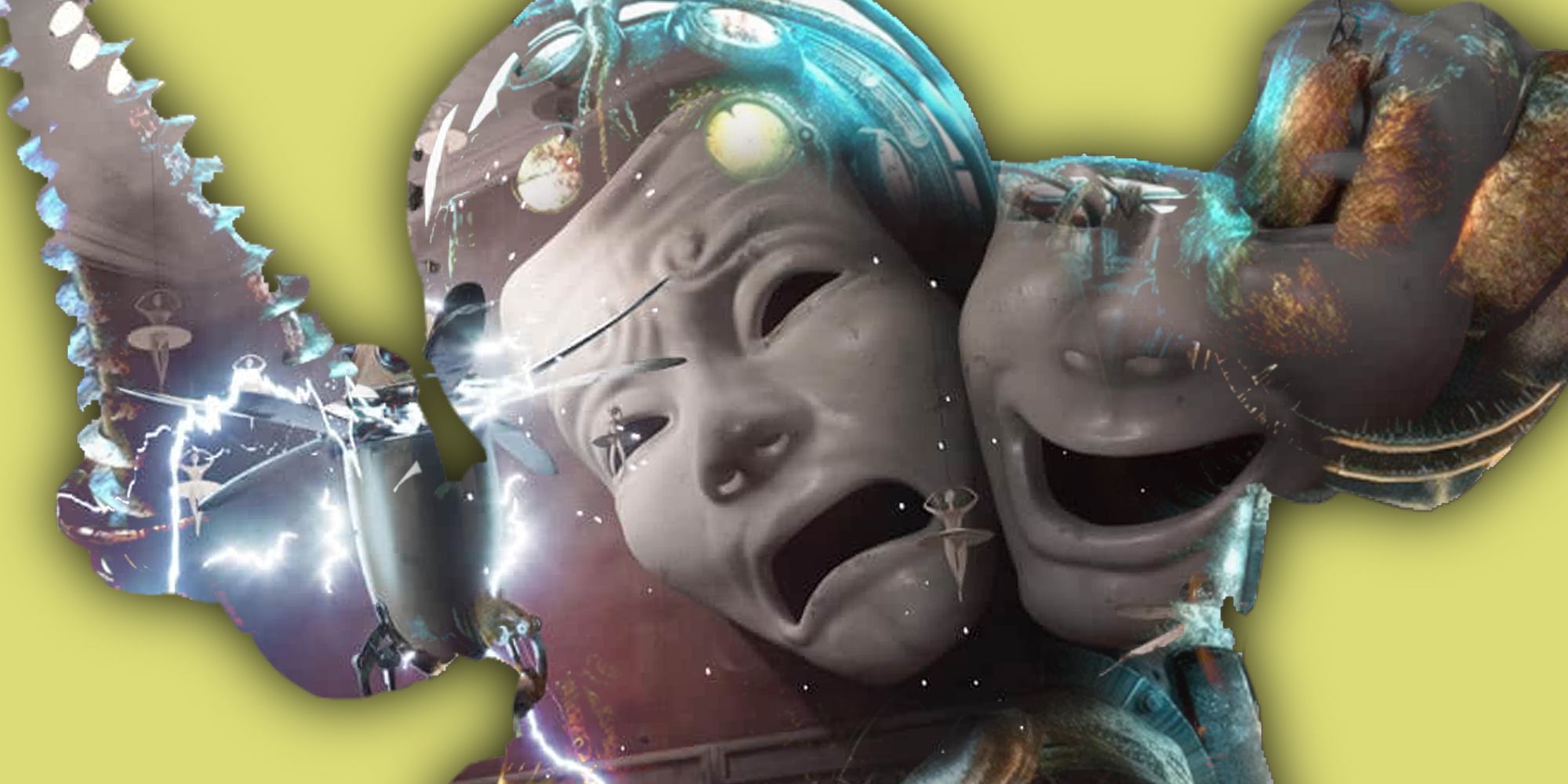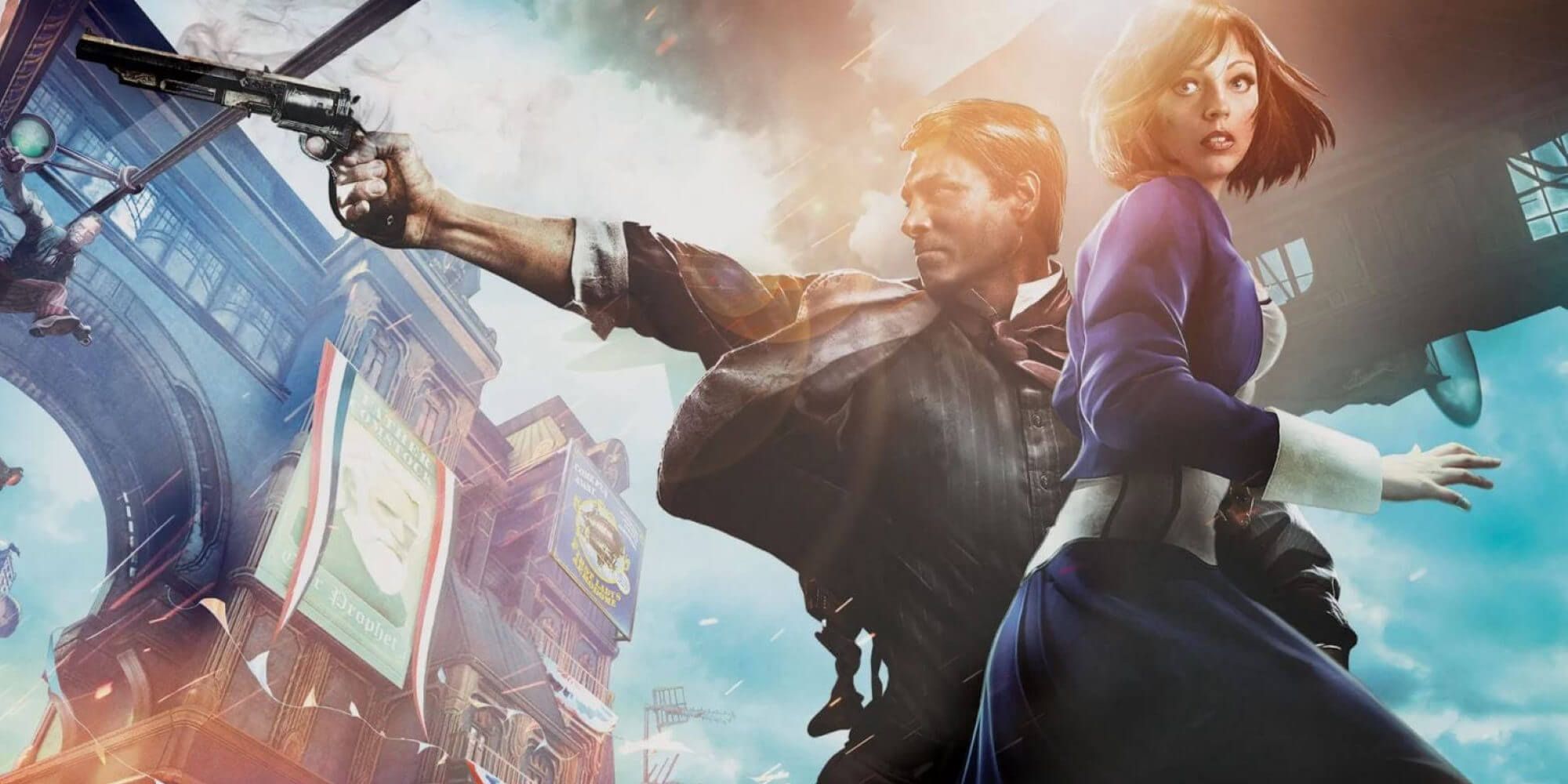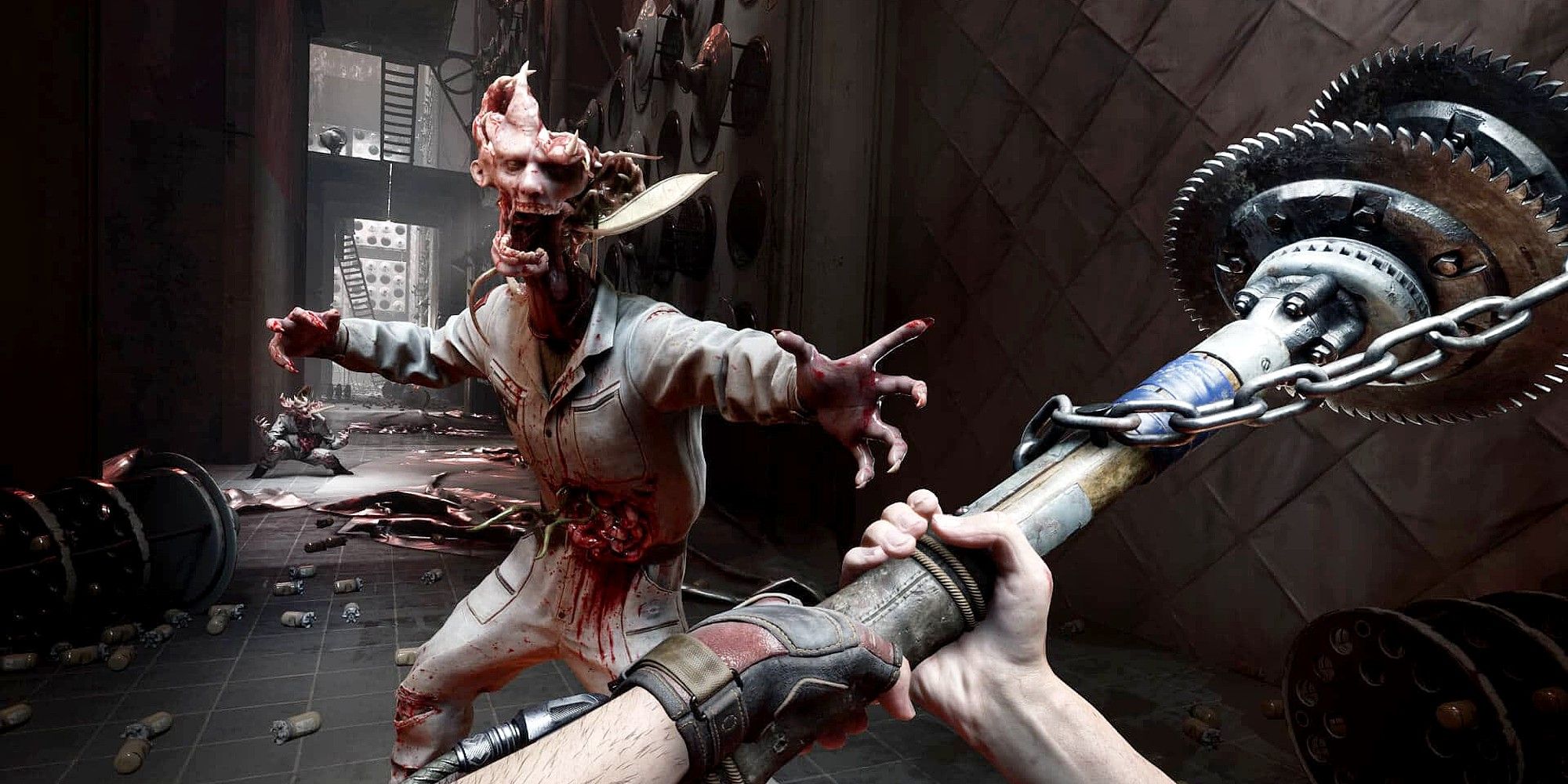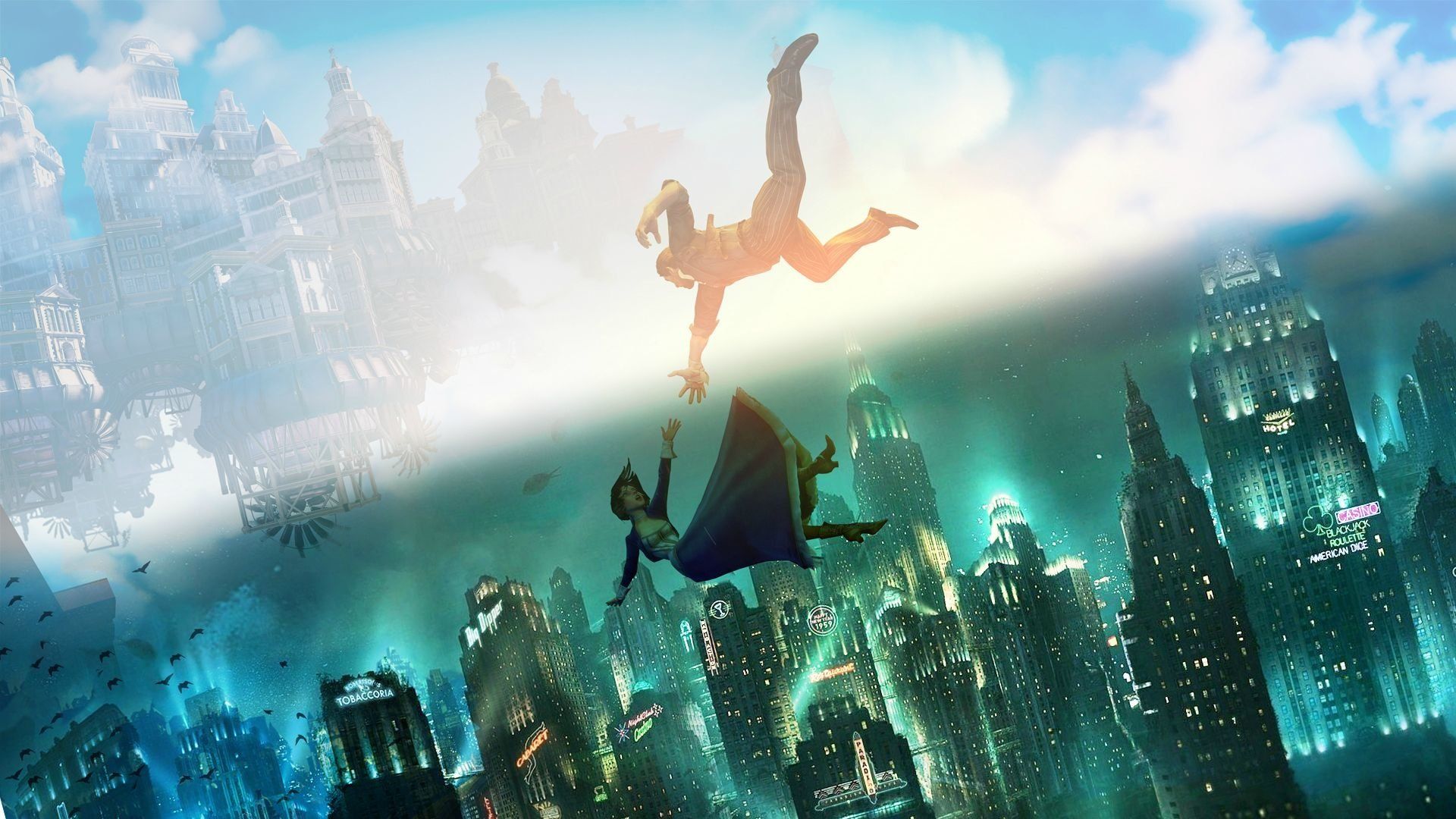BioShock remains one of the most influential games ever made. First released for the Xbox 360 and PC back in 2007, this spiritual successor to System Shock 2 took its immersive sim elements and transplanted them into the mold of a blockbuster shooter. Much of the nuance and experimentation was left behind, but Irrational Games made up for this absence with a smart, considered, and groundbreakingly unique adventure that changed games forever.
It combined the genre’s penchant for ultra violence and set pieces with a rewarding loop of progression where the player was always growing more powerful and cementing their place in the world. Even more prevalent though was the thought-provoking ideas at the centre of it all. Rapture was an underwater utopia that willingly critiqued the entrenched socioeconomic privilege and ignorant politics of those who believed themselves simultaneously above the system yet also a fundamental part of it, forming an isolated bastion that would eventually become their undoing. It is a spectacular idea with infinite potential for creative expansion. Few games before or since have dared to tackle the philosophy of objectivism in such depth, doing far more than referencing a school of thought as it's thrust under the microscope. There's a reason it went down in history.
Like all good ideas in video games, it quickly became the catalyst for bland copycats and a refusal to leave its innovation behind in favour of continued evolution. We still tend to view BioShock as the shining example of first-person narrative and atmosphere, putting Irrational Games and Ken Levine on a pedestal that for decades now major studios and indie houses have been trying and failing to dethrone.
2K and Cloud Chamber are hard at work on a new entry we probably don’t need while Levine and his own company recently revealed the first trailer that of a game appears to be a spiritual successor to a spiritual successor that is far from subtle about the audience it hopes to entice. For better or worse, BioShock never goes out of style.
You could declare this reputation as proof that BioShock is indeed a timeless masterpiece, but it also points to how video games as a medium have far too few shining examples of what they’re capable of that greedy corporations will continue to use as a blueprint without considering the time or place in which they were produced. Even BioShock Infinite fell victim to that trap despite coming from largely the same team. It began its marketing cycle by promising a vast open world with a huge number of smart decisions to be made by the player that would fundamentally change the world of Colombia.
But these demos were watered down until all that remained was a relatively linear shooter with a story that constantly tripped over its own convolution. It was clever at first because on the surface we didn’t understand its lighthouse motif and how it toyed with multiple universes, but once you dared to pick away at it with the slightest doubt it all fell apart. Yet we treat it as gospel.
Over the years we saw critics and players begin to take a step back and notice how diametrically opposed its lofty intellectualism was to a gameplay loop that involved swinging around on skylines and throwing fistfuls of crows at enemies because a BioShock game had to have magical hand powers, or it just wouldn’t be the same. They had no justifiable place in its world, although its status as a triple-A blockbuster meant that creatively executed bouts of violence needed to get along with the narrative whether it was the right decision or not.
This is why we’ve come to view Infinite with such derision, and why the two-part downloadable expansion that returns to Rapture is far stronger than the base campaign could ever be. It relied on the past, pilfering from its pristine corpse and recontextualising iconic characters and twists as some form of backhanded apology. Please forget about where Infinite went wrong and enjoy this trip down memory lane that falls even further into a bleak nostalgic comatose.
We only have tertiary leaks to draw from when it comes to Cloud Chamber’s sequel project, but I’m going to take a wild guess that it will involve the player exploring a ruined city which becomes engulfed in a conflict fueled by two warring political ideologies each with their own problematic flaws to confront. Infinite set a glaring foot wrong with misplaced and shallow suggestions that revolutionaries fighting against systemically racist oppressors were also in the wrong because they dared resort to violence, while the original’s blunt exploration of Rand’s staunch objectivism was surprisingly anti-capitalist in how it deconstructed Andrew Ryan’s flawed utopia. Dude was a fascist Walt Disney and was never afraid to make that clear.
There are clever political themes and ideas littered through BioShock’s history, but gaming remains a medium where the loudest voices object to political involvement or experiences that harbour a message they hope to pass onto the player. A hope for them to consider a change or their place in a world that continually falls victim to capitalist greed and societal inequality. Unfortunately, the consensus boils down to them being super cool games since they’re spooky and let you cover homicidal drug addicts in bees. It represents the dichotomy BioShock faces in the medium it calls home. Whether a sequel can afford to effectively build on its ideas or if it will even bother given the guaranteed success that will come by revisiting the past without ever interrogating what it meant.
Its myriad copycats are similarly flawed in how they ape political iconography while doing all they can to pussyfoot around what it actually represents. Atomic Heart might seek to critique the Soviet Union, but its aesthetic is so drenched in familiar imagery and communist clichés that it is all players will ever pay attention to. Ironically, right-wing internet trolls are praising it for supposedly leaning into old-fashioned game design tenets and shameless misogyny that isn’t afraid to be old school in its intention. Yet it also tears down the very same ideology said bigots cling to in a bid for relevance.
We Happy Few, Singularity, Metro, and Arkane’s stellar library of immersive sims at least tried exciting new things, yet devs will constantly namedrop BioShock like the be all and end all of influences. If we never move on from the innovation it helped usher in, we’ll forever be held hostage by it. Almost twenty years have passed us by and the most common piece of praise directed towards Atomic Heart is how it’s basically a lot like BioShock but also worse in nearly every way.
A masterpiece changed this medium and instead of considering its success on a deeper level with an aim to build on what it did so well, we rely on and regurgitate its brilliance until there’s nothing left worth caring about. Games are too expensive and take too long to make for us to recycle ideas as we constantly strive to better games that came out years ago, so perhaps its time we left BioShock behind and strived for something more.





